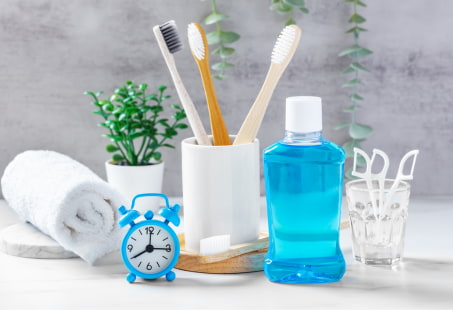Chlorhexidine mouthwash is widely known for its strong antibacterial effects, and it’s used for the management of several oral health conditions, including plaque accumulation and gum disease. While this mouthwash is considered quite effective, on the other hand, there are some serious risks that can accompany its usage.
It’s not like any other mouthwash either, as your dentist will likely prescribe it to you for a specified time period only. In this guide, you’ll learn more about how chlorhexidine mouthwash works, what it does, its potential side effects, and cost.
What Is Chlorhexidine Mouthwash?
Chlorhexidine is an antimicrobial agent. As far as its mechanism of action is concerned, being positively charged, it’s attracted to the negative charge of the cell wall of the bacteria. Eventually, it ends up penetrating through the cell wall, “damaging it and compromising its integrity;” at first, it prevents the growth of the bacteria (bacteriostatic) and then it kills the bacteria (bactericidal), as per a 2022 study published in the International Dental Journal.

However, while it’s widely known to destroy bacteria, it also works against viruses and fungus that can affect the oral health. For instance, a 2004 study in the Oral Surgery, Oral Medicine, Oral Pathology, Oral Radiology, and Endodontology showed that chlorhexidine rinse can treat and prevent oral candidiasis (thrush), a fungal infection, in children infected with HIV. Similarly, because of its antiviral property, its use for oral herpes has also been investigated. However, there’s a lot more than this mouthwash can do.
What Does Chlorhexidine Mouthwash Do?
The following are some of the uses of chlorhexidine mouthwash for oral health problems:
Reduce Dental Plaque
Plaque refers to the soft sticky film of bacteria that forms around the teeth. This plaque makes acid, which can attack the teeth, resulting in cavities. But that’s not all, as this plaque can also irritate your gums, leading to gum disease.
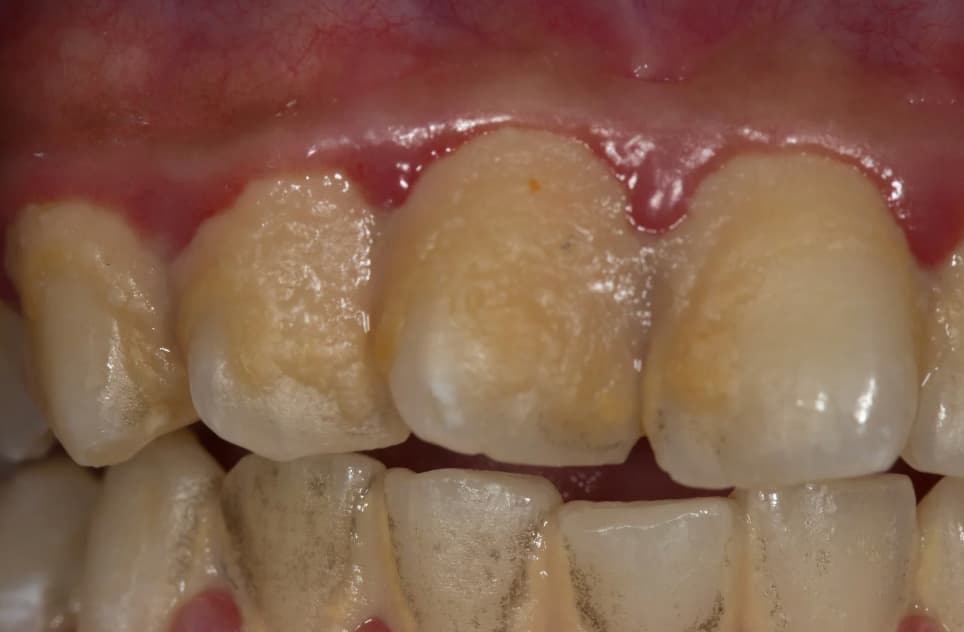
Chlorhexidine mouthwashes are widely known to help control plaque, and in one of the 2017 Cochrane Database of Systematic Reviews, it was concluded that using mouthrinses with chlorhexidine in them, as well as the usual brushing of the teeth and cleaning, for “4 to 6 weeks or 6 months leads to a large reduction in the build-up of plaque.”
Although seemingly counterintuitively, one of the side effects of chlorhexidine is also the build-up of calculus, which is also known as calcified dental plaque or tartar. It’s one of the reasons why you must talk to a medical doctor before using this mouthwash. The pros of this mouthwash need to be weighted against the cons before it can be deemed suitable for your specific needs.
Manage Gum Disease
Gum disease is another common oral health problem that results from the build-up and hardening of plaque around the teeth.
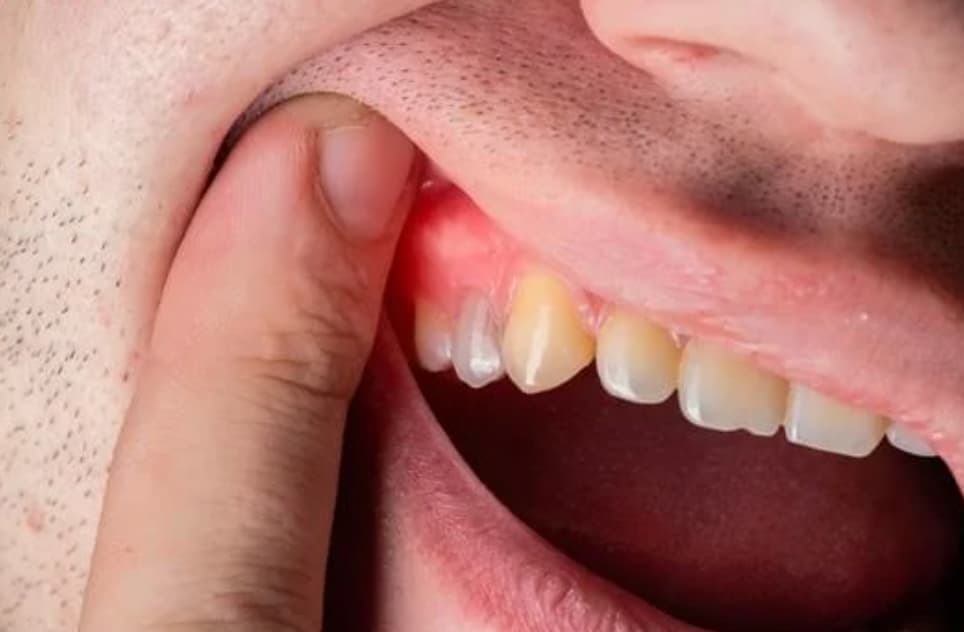
And chlorhexidine is said to help in the prevention and treatment of gingivitis – mild form of gum disease. As per Mayo Clinic, it helps reduce:
- Gum Swelling
- Gum Inflammation (redness)
- Gum Bleeding
Additionally, chlorhexidine may be used as an adjunctive therapy for the more serious acute necrotising ulcerative gingivitis, as reported by Medscape.
Quickly Heal Mouth Ulcers
Mouth ulcers can be very bothersome nuisances that can cause pain and make eating, drinking, teeth brushing, and even talking difficult.
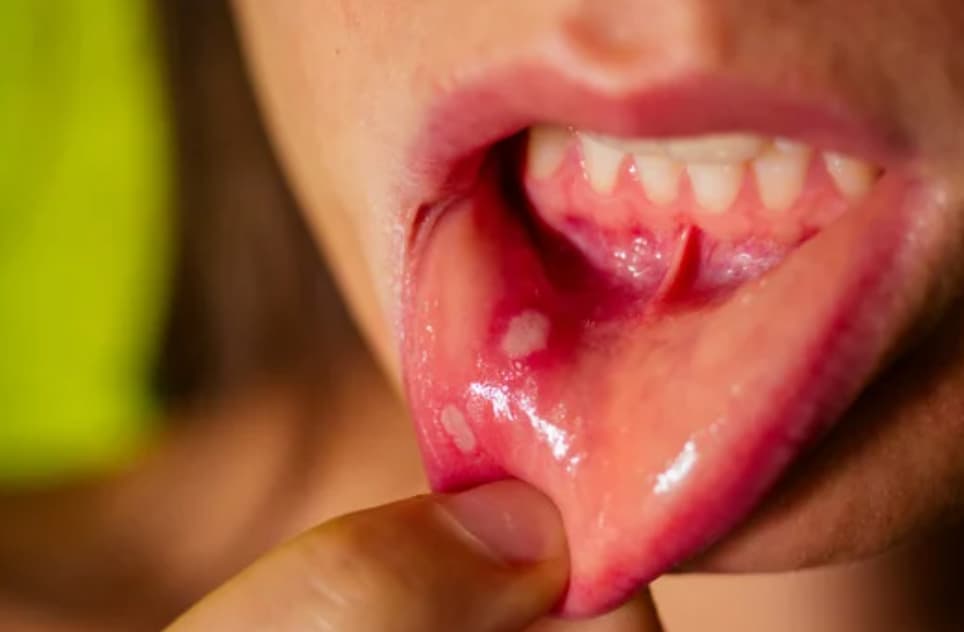
Chlorhexidine’s positive impact on this has also been reported. According to NHS Wales (GIG Cymru), chlorhexidine mouthwash can:
- Reduce pain
- Help ulcers heal faster
- Not let them get infected
Reduce Dry Socket
Dry socket, also known as alveolar osteitis, is a painful complication that can occur after the extraction of a tooth. It’s when the blood clot in that area gets dislodged or doesn’t develop.
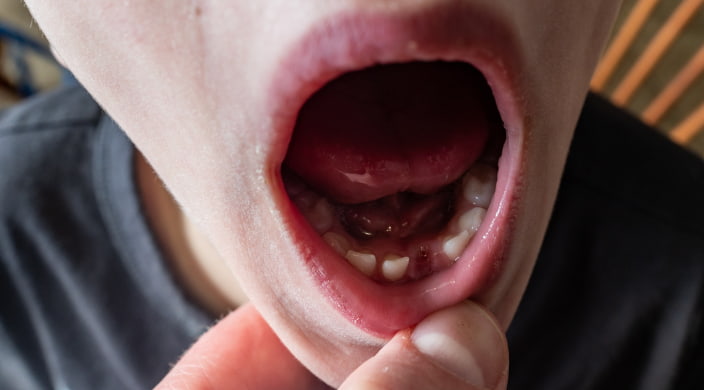
Another 2022 Cochrane Review on the management of dry socket reported that there is a “moderate-certainty evidence” that chlorhexidine rinse or placement of chlorhexidine gel “probably” reduces dry socket in extracted teeth.
Minimise Bad Breath
Bad breath, also known as halitosis, can be quite problematic in many social situations, and it is caused by the odour-causing bacteria that reside inside the mouth. Since chlorhexidine mouthwash is antibacterial, it may potentially help in the reduction of bad breath.

One 2021 study published in the Journal of Pharmacy and BioAllied Sciences concluded that probiotic therapy with chlorhexidine after oral disinfection may reduce halitosis for a long period of time.
Prevent Dental Caries
It’s important to preface this that it’s not exactly conclusive whether or not chlorhexidine actually helps in the prevention of dental caries.
Streptococcus mutans is a bacteria that’s found in the oral cavity and is considered the main contributor to tooth decay.

And research has reported a reduction in this bacteria through the use of chlorhexidine, such as the 2018 Journal of Oral Biology and Craniofacial Research study, which concluded that the chlorhexidine mouth rinse showed a “statistically significant” reduction in Streptococcus mutans in contrast to a herbal rinse.
However, a 2015 Cochrane Review on chlorhexidine treatment for the prevention of dental caries in children and adults concluded that the use of this agent’s varnish or gel does not reduce tooth decay or reduce the bacteria that promote the decay of teeth.
In fact, conversely, a Scientific Reports study indicated that chlorhexidine mouthwash changes the oral microbiome and makes the environment more acidic, which favours an increase in dental caries.
Keep Dentures Clean
Chlorhexidine rinse may also be used in the cleaning of the dentures. As reported in a study published in the British Dental Journal, chlorhexidine-based mouthwashes between the concentrations of 0.2-4% have shown “significant antimicrobial activity.”

Especially the soaking of “acrylic dentures and dentures with soft silicone linings” in the 4% solution works better against Candida albicans (fungus) and Streptococcus mutans (bacteria) in contrast to “mechanical brushing” and the use of “effervescent-type cleaning tablets.”
How To Use Chlorhexidine Mouthwash?
According to the NHS, if you’re getting your chlorhexidine treatment at a pharmacy or market, make sure to follow the instructions on it. In the case of a prescription, you should follow the advice of your doctor, dentist, or pharmacist.
For mouthwash, they state that the usual dosage is 10ml, two times per day. You need to swish it in the mouth for about 1 minute before spitting it out (no swallowing). Afterwards, you need to wait for 30 minutes to 1 hour before you can eat or drink something.
Can You Use Chlorhexidine Mouthwash Everyday?
Importantly, the National Institute for Health and Care Research (NIHCR) notes that chlorhexidine mouthwashes are licensed for 30 days’ use in the UK, and they’re not for routine usage. Again, make sure you talk to a medical professional about it.
Is Chlorhexidine Mouthwash Safe?
While chlorhexidine mouthwash is considered safe, provided it’s used properly, it still carries certain risks and side effects, some of which are as follows:
- Dry mouth
- Increase in the formation of calculus
- Taste alteration
- Staining of the tongue and dental restorations
- Mouth irritation
This list is not exhaustive, and there are even more serious risks associated with it, such as a life-threatening allergic reaction and the possibility of developing antimicrobial resistance has also been raised.
The NHS also warns that some chlorhexidine mouthwashes contain alcohol, so if you have to avoid it, make sure to ask for one that’s without alcohol.
Age is another important factor to consider where the NHS states that chlorhexidine mouthwash can be used by children aged 12 and above and adults.
Lastly, if you’re suffering from a health problem, are pregnant or breastfeeding, it’s best to consult your dentist before using this product.
Does Chlorhexidine Mouthwash Stain Teeth?
One of the more widely-known concerns about chlorhexidine mouthwashes is that they can stain the teeth. It’s a common problem.
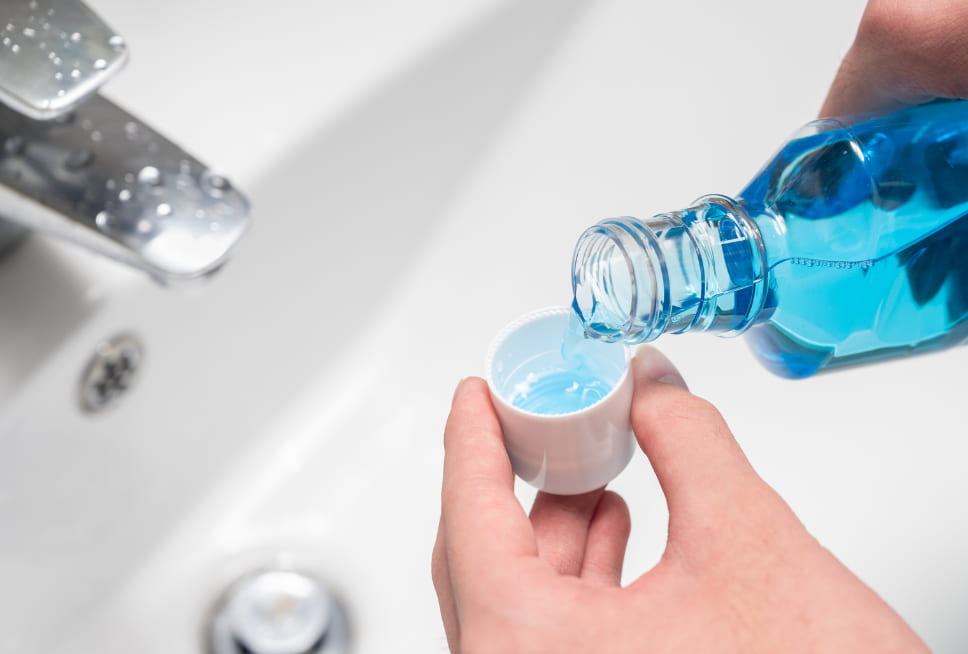
While there are different explanations as to how chlorhexidine causes the staining of the teeth, “dietary chromogens” (compounds that give food its colour) are held responsible, in part, for these stains, as per a 2022 study published in the European Journal of Dentistry.
Fortunately, however, now there are mouthwashes that come with an anti-discolouration system. A review in the International Journal of Dental Hygiene reported that there is “moderate quality evidence” that the addition of an anti-discolouration system in chlorhexidine mouthwash reduces the discolouring of the tooth’s surface.
How Much Is Chlorhexidine Mouthwash?
A bottle of chlorhexidine mouthwash in the UK might cost you around £3.50. The price may slightly vary between different brands and the overall ml.
Conclusion
Chlorhexidine mouthwashes have been around for quite a while, and they have found a number of applications and usages. They’re widely known in the world of dental health and can help with a number of issues like gingivitis, bad breath, plaque, dry socket, etc.
However, it’s important to keep in mind that chlorhexidine mouthwash is not like any other. There are specific instructions on how long they should be used, their frequency of usage, dosage, etc. Additionally, they come with some very serious risks, so make sure to consult a board-certified medical professional before using them.
Reviewed and approved by Dr Izbel Aksit
